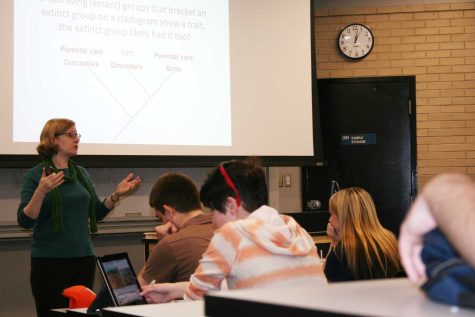Ohio Senate Bill 83 creates concern on campuses
Campus Seal
March 29, 2023
Ohio Senate Bill 83, otherwise known as “The Ohio Higher Education Enhancement Act,” has reflected a disconnect between the needs of constituents and the wants of state legislators, according to members of the institutions that will be affected.
The primary sponsor of the bill, Sen. Jerry Cirino, alongside seven co-sponsors, introduced the legislation to the Ohio Senate to “expose students to a variety of thoughts” and eliminate “bias” within college classrooms. The bill encompasses a wide variety of regulations to implement in Ohio’s higher education system.
BGSU Professor of Ethnic Studies, Timothy Messer-Kruse, released a commentary article in Ohio Capital-Journal on March 24, calling the proposed legislation a “poorly written and conceived law.”
Kruse highlights the section of Senate Bill 83 that prohibits any college or university from disadvantaging or segregating any students by “membership in groups defined by…sex or sexual orientation, gender identity or gender expression.”
“Together, these provisions will require that we close down most of our intramural and intercollegiate club sports teams,” said Kruse. “We are on the cusp of true social transformation of our college campuses.”
The 2023 legislative session has reflected a growing number of anti-LGBTQ bills being introduced for lawmakers, according to the American Civil Liberties Union (ACLU), who have continued to track over 430 anti-LGBTQ bills in 2023 with a mapping database.
The bill, if imposed, would eliminate universities from taking a stance on “controversial” social issues. The bill defines this political controversy as “including issues such as climate change, foreign policy, diversity, equity and inclusion programs, immigration policy, marriage or abortion.”
“This bill will move us toward true academic freedom,” said Senator Cirino. “We need students to be taught how to think, not what to think. Now, more than ever, it is vital to preserve the credibility and confidence in our state universities, four-year colleges and community colleges by making sure they are not straying from their core mission of education.”
Other employees at institutions of higher education across Ohio have expressed dislike toward the proposed legislation, such as the Director of the Asian American Studies Program and Associate Professor in the Department of English at Ohio State University, Pranav Jani, who released an Op-Ed on the bill.
“[The legislation] isn’t just trying to roll back a few programs, but an entire legacy of protest and transformation,” he said. “And by banning strikes at public universities and bringing greater political surveillance over faculty teaching and retention, the bill wants to undercut our very ability to resist such draconian changes in policy.”





















